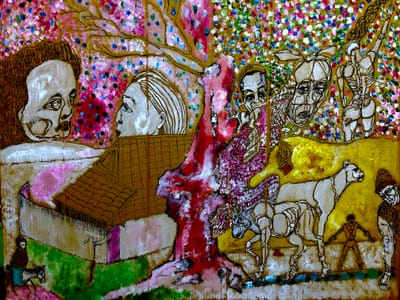Articles #Nietzsche
The fundamental reorientation I took from Deleuze’s Nietzsche was this: life can no longer be made to appear before the categories of thought; instead, thought must be plunged into the categories of life. If the modern disease is ultimately a problem about how we think, then discovering the potencies of different ways of thinking may be the route to cure or redemption. Continuing the End Times series, Richard Marshall interviews Philip Goodchild.
Read MoreI think of Spinoza as a radical religious reformer. I think he was trying to say this: “There is a single entity whose nature determines the structure and existence of the universe, and that entity is the thing that people have been calling “God” for many centuries. But they got the metaphysics (or theology) very wrong, and now we’re in a position to figure out what this divine thing really is, and to see how the writers of scriptures managed to get the basic moral of the story right, while getting all the metaphysical stuff wrong. And by the way, if you understand what I’m saying, you’ll see that there’s no harm in allowing philosophers to write about such things.” Continuing the End Times series, Richard Marshall interviews Charlie Huenemann.
Read MoreI’m keenly aware of the possibility of the Parmenidean (e.g., me!) undermining their own position. After all, explanation itself seems to be relational; things are explained (often at any rate) in terms of other things. I don’t shy away from this apparent or even real self-undermining. For me, it’s a feature not a bug. And I embrace this self-undermining, in much the same way that Parmenides may have (see especially Owen’s reading of Parmenides), as Wittgenstein does at the end of the Tractatus, as Bradley does, and as my skeptical hero, Sextus Empiricus, does. In this way, I offer—paradoxically perhaps—a relational metaphysical challenge to relational metaphysics itself. Continuing the End Times series, Richard Marshall interviews Michael Della Rocca
Read More

